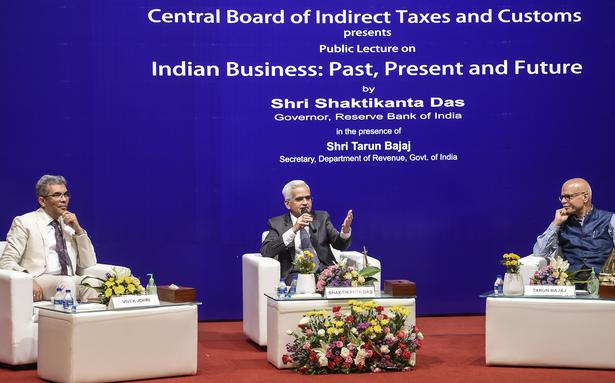The Reserve Bank of India (RBI) will soon come out with a broad regulatory architecture to address the challenges posed by digital lending platforms, according to Governor Shaktikanta Das.
“… I think, very soon we will be coming out with a broad regulatory architecture which should be able to address the challenges that we are confronted with, with regard to lending through digital platforms, many of which are unauthorised, unregistered and, should I say, illegal,” Das said in his address on the occasion of iconic week of Azadi ka Amrit Mahotsav celebrations organised by the Central Board of Indirect Taxes and Customs.
Over the past one year, thousands of people have fallen prey to predatory loan apps in the absence of any regulations, suffered even sexual harassment and ended up paying extortion money to loan recovery agents.
Protecting customers
The RBI’s working group (2021) on digital lending, including lending through online platforms and mobile apps, noted that while the current share of digital lending in overall credit pie of the financial sector is not significant for it to affect financial stability, the growth momentum has compelling stability implications.
It is believed that ease of accessing digital financial services, technological innovations and cost-efficient business models will eventually lead to meteoric rise in the share of digital lending in the overall credit, per the group’s report.
“The larger issue here is protecting the customers from widespread unethical practices and ensuring orderly growth. As has been seen during the pandemic-led growth of digital lending, unbridled extension of financial services to retail individuals is susceptible to a host of conduct and governance issues,” the group said.
Challenging role
The group also emphasised that mushrooming growth of technology companies extending and aiding financial services has made the regulatory role more challenging. In view of the ease of scalability, anonymity and velocity provided by technology, it has become imperative to address the existing and potential risks in the digital lending ecosystem without stifling innovation, it added.
“At the Reserve Bank, we do recognise the role of existing as well as emerging businesses for economic progress. Long-term success of any business is directly linked to its quality of governance, internal control systems and the robustness of its risk and organisational culture. The Reserve Bank has been pushing for improvements in the governance and compliance culture of its regulated entities through a series of measures,” Das said.
Business models
The Governor emphasised that business models and strategies of individual entities should be conscious choices that are adopted following a robust strategic discussion in the Board, after considering all relevant aspects. Businesses should avoid aggressive short-term reward seeking culture, without regard for the build-up of excessive risks in the balance sheet, he added.
Das observed that the common characteristics of some inappropriate business models or strategies that are observed include inappropriate funding structure; and building asset liability mismatches which are highly risky and not sustainable.
He also underscored unrealistic strategic assumptions, particularly excessive optimism about capabilities, growth opportunities and market trends which may lead to poor strategic decisions that imperil business model viability; and over-focus on business considerations with neglect of risk, control and compliance systems.
Published on
June 09, 2022
